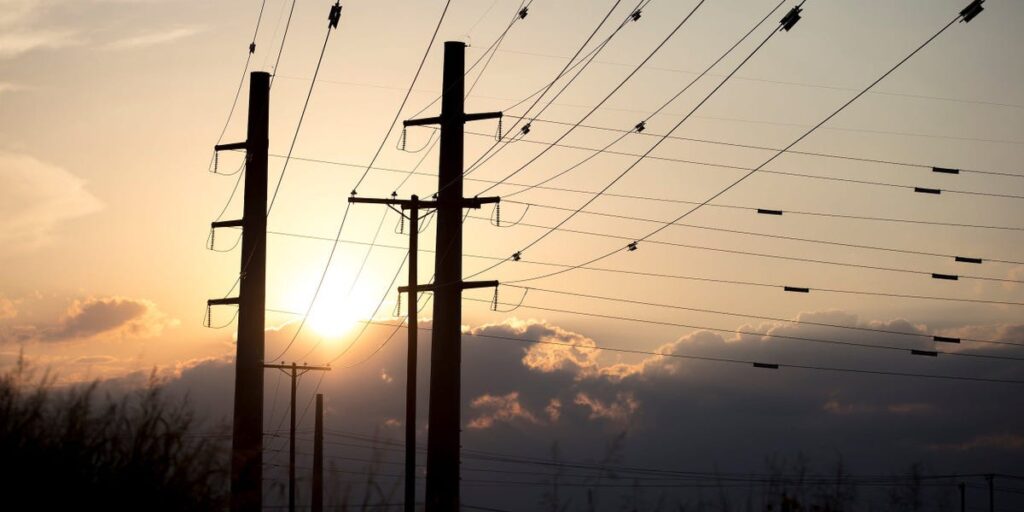Your electric bills may have shot up in recent months, and you might be tempted to blame your roommate, who never turns the lights off, or your old window air conditioner unit.
It’s not because of your roommate. It’s not your window unit. It’s actually Big Tech’s fault.
Customers of the biggest regional power grid operator in the US could see their bills go up next year, largely due to skyrocketing demand for electricity coming from AI data centers.
Last week, PJM Interconnection closed its annual capacity auction with prices for wholesale electric capacity up 22% from 2024, another record-breaking year. As a result, monthly electric bills in PJM’s territory, which covers 67 million customers, could increase up to 5% next year, the grid operator said.
PJM Interconnection territory spans thirteen states from the Midwest to the East Coast— including all or parts of Delaware, Indiana, Illinois, Kentucky, Maryland, Michigan, New Jersey, North Carolina, Ohio, Pennsylvania, Tennessee, Virginia, West Virginia, and Washington, D.C.
Every year, PJM’s summer auction determines the cost of wholesale electricity for the following year. Though its territory doesn’t cover the entire US, the energy industry looks at the PJM auction as a bellwether for electricity prices for the entire country.
PJM’s territory includes Data Center Alley in Northern Virginia, home to the world’s biggest concentration of data centers. It also includes areas of the country where data centers are rapidly expanding, such as Columbus, Ohio. The grid operator identified data center expansion as the primary driver of demand in its territory, which caused the jump in wholesale electricity prices.
After a decade of little to no growth, electricity demand in the US is expected to grow 2.5% annually through 2035, driven largely by data centers, according to the Bank of America Institute.
Utility bills are climbing faster than the pace of inflation, according to the US Energy Information Administration. That trend is expected to continue through the next year.
In Maryland, People’s Counsel David Lapp has been urging state and federal regulators to intervene on behalf of residential utility customers and small businesses.
“We are witnessing a massive transfer of wealth from residential utility customers to large corporations—data centers and large utilities and their corporate parents, which profit from building additional energy infrastructure,” said Lapp. “Utility regulation is failing to protect residential customers, contributing to an energy affordability crisis.”
Got a tip for this reporter? Contact Ellen Thomas at ethomas@insider.com.


